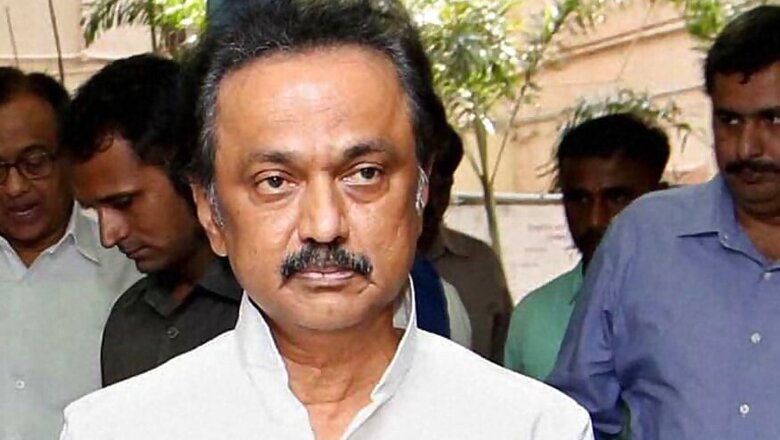
views
Chennai: The DMK on Monday termed the Raj Bhavan’s imprisonment warning ‘intimidatory’ and vowed to continue its protests against Tamil Nadu governor Banwarilal Purohit over his visits to districts and meeting officials.
The principal opposition, which staged a walkout in the state assembly over the governor’s visits, also asserted it would “make any sacrifice” to uphold the state’s autonomy.
The Raj Bhavan had issued a strongly worded statement taking exception to the DMK’s continuing protests against Purohit’s district visits and the party’s “Siege Raj Bhavan” stir on Saturday.
The Raj Bhavan had said the governor enjoys “unhindered freedom” to interact with officials and cited a legal provision providing seven years imprisonment to those “restraining” him from exercising in any manner any of the lawful powers.
It had also cited Section 124 of the IPC, which said “whoever with the intention of inducing or compelling the President of India, or the Governor of any state... shall be punished with imprisonment of either description for a term which may extend to seven years.”
DMK working president MK Stalin said the Raj Bhavan statement was ‘intimidatory’ and the party would hold black flag demonstrations if the governor continued with the exercise.
“As far as the DMK is concerned, we will continue with our black flag protests if he (Purohit) continues his visits... not just seven years, even if we have to be in prison for our life, DMK is ready to make any sacrifice to ensure regional autonomy,” he said.
Stalin, who led the “Siege Raj Bhavan” stir, had said the DMK would intensify the agitation if the governor continued to hold such meetings in districts.
The party has been opposing Purohit’s visits to districts and holding meetings with officials, terming it an interference in the state’s rights.
The DMK working president attempted to raise the issue in the state assembly but Speaker P Dhanapal said the House rules forbid any discussion on the governor.
To this, the DMK leader said in the past, the relevant rule had been relaxed for a debate on the governor. However, the Speaker said the practice of relaxation of the particular rule was no more in vogue.
Stalin said he was taking up the issue in the interest of the state’s autonomy and was speaking for the ruling AIADMK too.
With the chair remaining firm on not allowing a debate despite his repeated attempts, the DMK leader announced a walkout and trooped out with his party members. DMK’s allies Congress and IUML also walked out of the House.
Later, Stalin told reporters that during the AIADMK rule in 1995, a debate was held in the assembly and later a resolution adopted seeking “the removal of then governor M Chenna Reddy”.
Stalin said he cited this precedence to seek a debate in the assembly.
The DMK workers had been staging black flag protests against Purohit during his visits to districts. On June 23, the party had held a “Siege Raj Bhavan” stir demanding Purohit's resignation and said it would intensify the protest if he continued to hold 'review' meetings with government officials in various districts.
Condemning the Raj Bhavan statement, Stalin had on Sunday accused the governor of trying to indulge in “direct politics”.
“I strongly condemn the Raj Bhavan statement and the governor for trying to do direct politics. The party will not run away from the responsibility and will not be cowed down by such empty threats,” he had said.
Ever since Purohit assumed office last year, he has been touring districts. After DMK’s protests earlier, Purohit has defended his visits and interactions with officials.
The Raj Bhavan statement said the word ‘review meeting’ was used by the Leader of the Opposition in an attempt to “mislead the people”. It also said the governor had the right to take decisions in critical times, and for being able to send ‘monthly reports’ to the President, he should be familiar with the features of the districts and the problems of the people.















Comments
0 comment